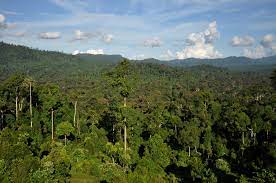AfDB and CIF hold workshop to enhance gender-responsive monitoring, evaluation and reporting capacity in Ghana's forestry sector
Gender-responsive monitoring, evaluation, and reporting are crucial in ensuring that development programs and policies are designed and implemented with a gender perspective.

The African Development Bank and Climate Investment Funds (CIF) held a three-day workshop to enhance in-country gender-responsive monitoring, evaluation and reporting capacity in Ghana’s forestry sector on 21-23 March 2023.
Gender-responsive monitoring, evaluation and reporting are essential to promote gender equality and ensure that development interventions are inclusive, effective, and sustainable. The workshop was an opportunity to discuss consistency and complementarity between individual CIF supported projects and the country investment plan. Ghana is resuming investment plan reporting for 2022 results after suspending country-level monitoring and evaluation during the Covid-19 pandemic.
Tabi Agyarko, Forest Investment Program project manager at the Ministry of Land and Natural Resources, affirmed the workshop's relevance to the forestry sector: “it is very useful that this workshop preceded the validation of the Ghana FIP annual report. This should be done regularly to enhance the understanding of FIP monitoring, evaluation and reporting guidelines before annual reporting.”
Gender-responsive monitoring, evaluation, and reporting are crucial in ensuring that development programs and policies are designed and implemented with a gender perspective. It involves collecting, analyzing, and reporting data to capture the different experiences, needs, and priorities of women and men.
The program is supporting the development of a gender-responsive Ghana 2022 Forest Investment Plan results report. It also seeks to address the country's current monitoring and reporting challenges while exploring opportunities to improve data quality and data management for forestry projects, including sex-disaggregated data.
Ollame Bekale, African Development Bank principal country program officer for Ghana, said: “This workshop is a good opportunity to showcase the bank's engagement in advancing the climate action agenda and striving for more impact. We thank the Government of Ghana for its contribution to this effort and the CIF to make it happen.”
CIF’s business model is characterized by a country-led programmatic approach with strategically linked, large-scale investments aligned with national priorities. Investments are designed and implemented using a participatory and multi-stakeholder approach.
The workshop brought together 40 participants, comprising project implementation teams and other stakeholders of Forest Investment Program projects in Ghana, and representatives of the African Development Bank and the World Bank. Participants discussed key implementation challenges and lessons learned that can inform future programming at the national and regional level while applying a gender lens.
In Ghana, the Forest Investment Program has provided over $75 million to support projects that unite the public and private sectors and indigenous people and local communities to restore degraded forest landscapes and improve forest management and sustainability. Efforts include promoting sustainable cocoa and climate-smart agriculture and agro-forestry systems,, restoration of degraded off-reserve forests and conservation of community dedicated forests and sacred groves, alternate livelihoods development, and facilitating institutional capacity building and policy reforms.










